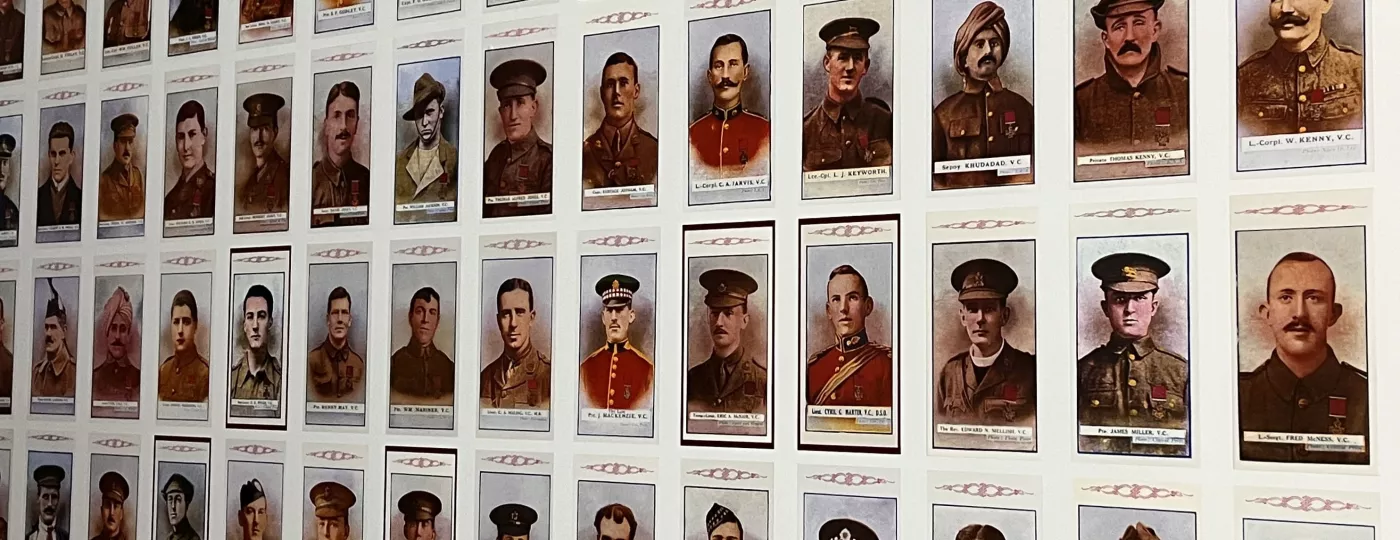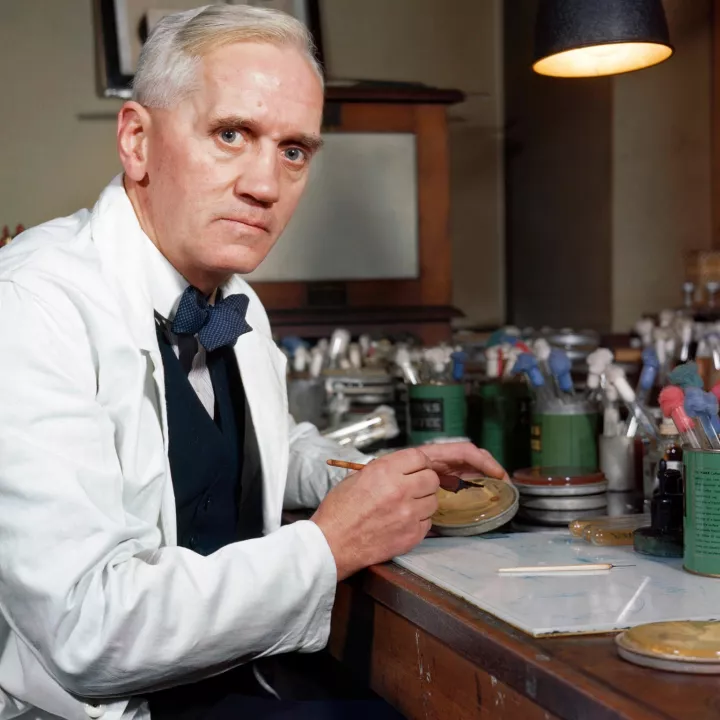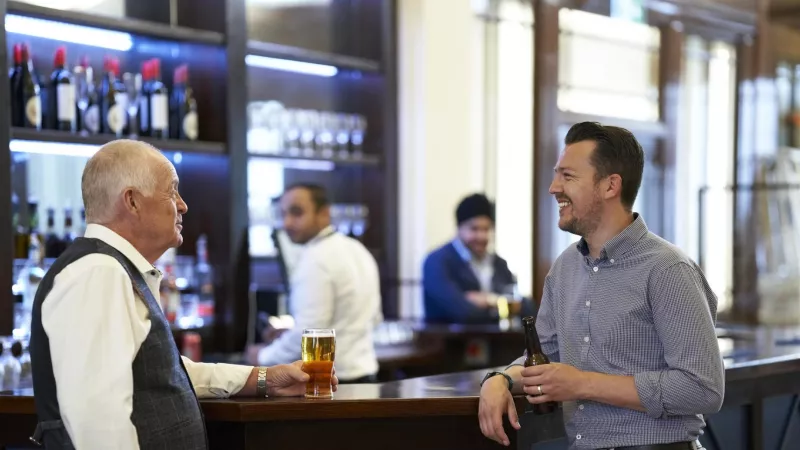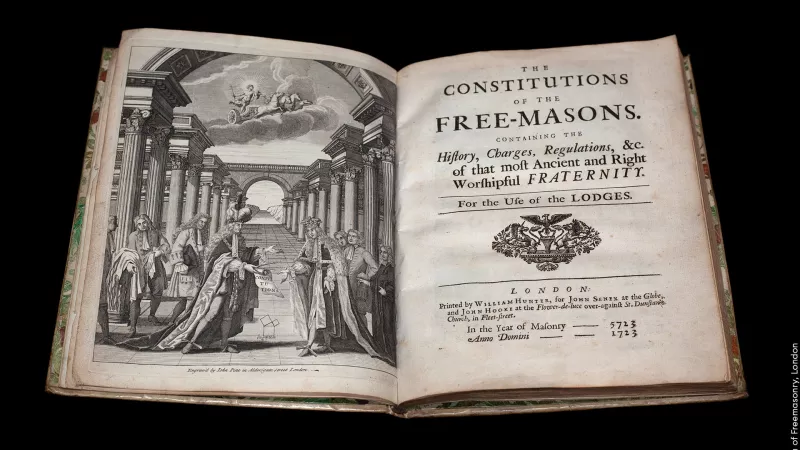Sir Alexander Fleming was born in East Ayrshire, Scotland, on 6 August 1881 and he is best known for having discovered penicillin, which is still used to treat bacterial infections today.
He moved to London at the age of 13 and later trained as a doctor. He qualified with distinction in 1906 and began research at St Mary's Hospital Medical School at the University of London under Sir Almroth Wright, a pioneer in vaccine therapy.
In 1928, while studying the influenza virus, Fleming noticed that mould had developed accidentally on a set of dishes being used to grow the staphylococci germ. The mould had created a bacteria-free circle around itself. Fleming experimented further and named the active substance penicillin. This discovery would change the world of medicine forever and cement Fleming's place as one of the world's most famous scientists. In 1944, Fleming was knighted by King George VI and won the Nobel Prize a year later.
In 1909 at the age of 27, Fleming was initiated into Sancta Maria Lodge No. 2682, which met in London. He served as Senior Warden in 1922 and Master in 1924. He became a joining member of London Scottish Rifles Lodge No. 2310 in London in 1911 and Misericordia Lodge No. 3288 in London in 1925, where he served as Master in 1935.
He was awarded London Grand Rank in 1934 and was appointed Senior Grand Deacon by the United Grand Lodge of England in 1942. He was also promoted to Past Senior Grand Warden in 1948.




